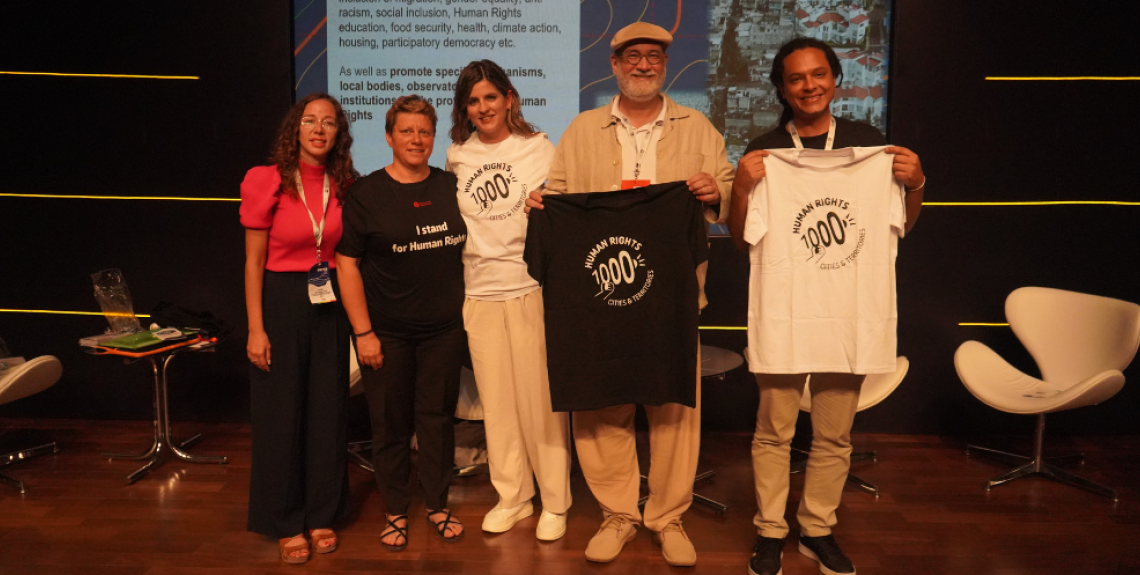Our Committee leveraged the 22nd IOPD Conference in Rio de Janeiro to promote the second wave of the global campaign "10, 100, 1000 Cities and Territories for Human Rights by 2030".
Learn more about how to join the campaign
Participants of the session were: Annabelle Breton, Deputy Mayor of Grenoble for Popular Education, Youth, Community Life and Participatory Democracy; Yago Feitosa, from the Civil House of Rio de Janeiro; Márcio de Jagun, Coordinator of Religious Diversity of Rio de Janeiro and Fabiana Goyeneche, Coordinator of International Relations of Montevideo. Participants shared their work to promote human rights in their local territories and engage citizens as active participants in building human rights cities. They also underlined the importance of our global campaign to raise awareness of their local action at the international level.
"Our Committee emerged precisely as a legacy of the World Social Forums in Brazil, and more specifically in Porto Alegre, with this desire to rethink local public action based on people and their rights in partnership with civil society", reminded our coordinator Amanda Fléty to open the session. She also underscored the 20-year history of our work to translate human rights at the local level into an engagement of local and regional authorities at the international level.
Learn more about the trajectory of our work on human rights cities
Our coordinator brought to the forefront that UCLG's commitment is to think of the city as a political actor where urban challenges can be addressed from local realities. That is why in 2011, UCLG adopted the Charter-Agenda for Human Rights in the City. "The good news is that cities have made progress on human rights and have expanded the notion to the local level. That is why we are currently in the process of renewal", said Amanda Fléty. The aim of the session and these processes is to encourage more cities to stand up for the human rights approach at municipal level in the international arena through UCLG.
Learn more about the process of updating the Charter-Agenda for Human Rights in the City
Grenoble implements a holistic approach to social inclusion, to ensure that all people have full access to their rights and basic services, explained Anabelle Breton. Grenoble's objective is to become a "welcoming city", so they pay special attention to populations in vulnerable conditions, such as migrants, lgbtqia+ people, young people, children and the elderly.
In Rio de Janeiro, they integrate a human rights approach in public administration to address issues of racial and religious diversity. In this sense, the city has a Civil House to take specific care of the black population so that they have full access to basic services, especially health and education, said Yago Feitosa. From the Coordination of Religious Diversity, they work to make visible the diversity and plurality that exists in this local territory to repair the historical gaps, said Márcio de Jagun.
Montevideo is a pioneer in its country in generating public policies and mechanisms for racial and gender equality to redress the gaps with people who have been historically and systematically racialised, gains achieved through social movements, as Fabiana Goyeneche acknowledged. To ensure human rights at the local level, Montevideo is leading advocacy at the regional and international level: heading the Latin American and Caribbean Coalition against Racism, Discrimination and Xenophobia, and bringing the perspective of local governments to the Inter-American Court of Human Rights to contribute to the collective consolidation of the right to a healthy environment. In addition to these efforts, collaborative work with UCLG was consolidated with the adhesion of Montevideo to our campaign.


